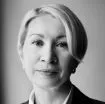INTRODUCTION
This report forms part of the Nordic Commercial Arbitration Forum, a bi-annual conference bringing together primarily arbitration practitioners from the region. First launched in March 2025 in Stockholm, the forum provides a platform for discussing developments in Nordic arbitration, fostering collaboration, and strengthening the region's position on the global arbitration arena.
The report, based on a January 2025 survey of six Nordic arbitral institutions, aims to deepen understanding of arbitration practices in the region and raise awareness of its institutions, services, and procedures. It also aims to assist arbitration users in making informed decisions when choosing venues and rules.
The study was proposed by Johnny Herre and Therese Isaksson, two leading Swedish arbitration practitioners, whose vision of mapping Nordic arbitral institutions through a comparative approach was instrumental to this research. We gratefully acknowledge their contribution, as it has shaped the direction of this study.
We also extend our sincere gratitude to all participating institutions for their support and contributions. Their willingness to share data has been essential in creating this report.
SCOPE OF STUDY
This report analyzes the data collected from six Nordic arbitral institutions: the Danish Institute of Arbitration (DIA), the Finland Arbitration Institute (FAI), the Nordic Arbitration Center (NAC) in Reykjavik, the Nordic Offshore and Maritime Arbitration (NOMA, which has no physical office), the Arbitration and Dispute Resolution Institute of the Oslo Chamber of Commerce (OCC), and the SCC Arbitration Institute (SCC). The report compares their structure, services, caseloads, arbitrator demographics, and digitalization efforts. Additionally, the study also incorporates statistics from the International Court of Arbitration of ICC as a benchmark, offering a comparative perspective between Nordic institutions and global arbitration practices.
The statistics represent the 2024 caseload of Nordic institutions, except for NAC, which provided both its 2024 statistics and average data for 2017–2024 due to its small caseload. ICC data pertains to cases involving at least one Nordic party filed in 2023. The level of detail varies, as some institutions have more comprehensive data available than others. Nevertheless, by compiling and analyzing the provided information, the report offers a structured overview of (1) institutional governance, (2) services, (3) case characteristics, (4) arbitrator statistics and (5) digitalization and technology usage. The study concludes with key findings on factors critical to the development of arbitration, both within individual jurisdictions and across the Nordics.
- Institutional Governance
The Nordics has six active arbitral institutions, four of which — FAI (Finland), NAC (Iceland), OCC (Norway), and SCC (Sweden) — operate as divisions of local chambers of commerce. The remaining two, DIA (Denmark) and NOMA (the Nordic Offshore and Maritime Arbitration Association, with no physical location), were established by professional associations and operate as standalone organizations. DIA was founded by the Danish Bar and Law Society, the Danish Society of Engineers, the Association of Danish Judges, SMEdenmark, and the Federation of Danish Engineers. NOMA was founded as an arbitration institution focused on shipping and offshore energy by the Maritime Law Associations of Sweden, Finland, Denmark, and Norway.
With the exception of NOMA, all institutions have a governance structure comprising a decision-making body, the Board, and an administrative body, the Secretariat. SCC and FAI bring international expertise to their Boards. SCC has the highest proportion, with 9 out of 15 members being international, while 11 participate in decisions on Swedish/Scandinavian cases. The FAI Board includes 7 international members. The Secretariat is staffed by employees of the respective Chamber of Commerce or, in the case of DIA — a standalone organization — by DIA itself. The number of employees varies significantly, ranging from 15 at SCC to one at NAC.
NOMA operates without permanent staff or an office. Its structure includes Contact Persons, a Board of Directors, and a Procedural Committee. The Board has two representatives from each of its founding Maritime Law Associations in Norway, Sweden, Denmark, and Finland. For procedural decisions, it appoints a Procedural Committee with one representative from each country and a president from one of them.
Despite these structural differences, the institutions share key governance principles. All Boards consist of external experts, ensuring independent decision-making. DIA, FAI, NAC, OCC, and SCC do not appoint their own Board members as arbitrators during their tenure. At NOMA the parties or NOMA's Procedural Committee may appoint a Board member but the Procedural Committee may not appoint one of its own members. In NOMA arbitrations, tribunals are primarily appointed by the parties.
Click here to read the full article.
The content of this article is intended to provide a general guide to the subject matter. Specialist advice should be sought about your specific circumstances.

